Micro Modular Homes: What are they and why would you get one?
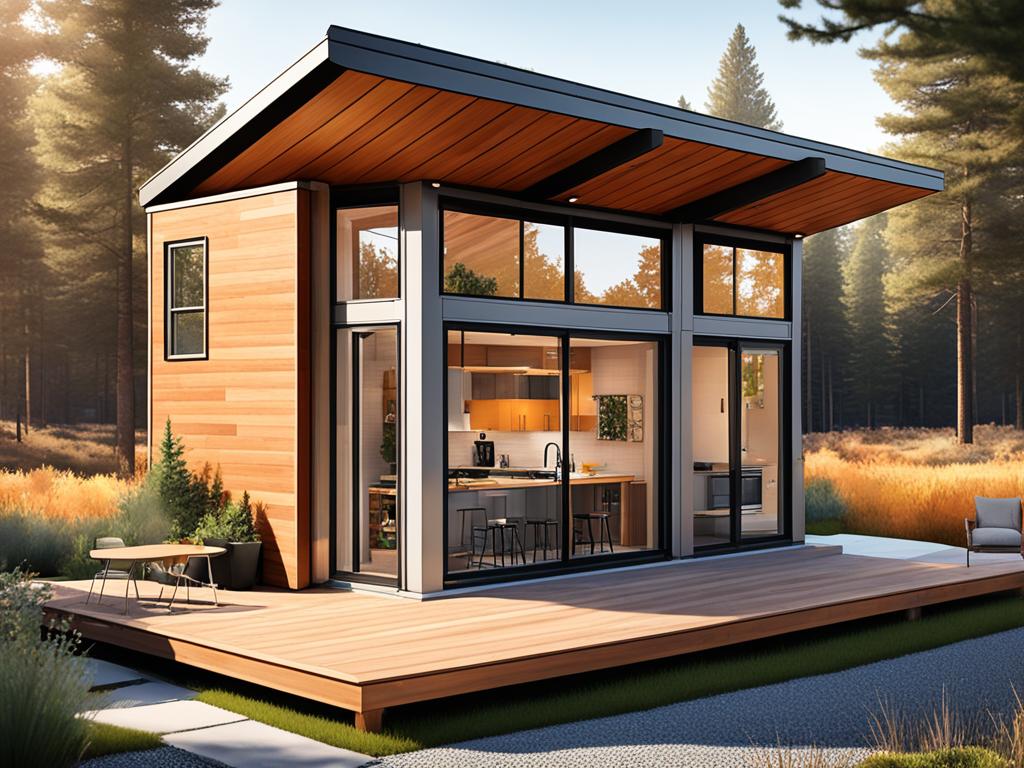
Micro modular homes, also known as compact homes, offer efficient and sustainable housing solutions for those seeking small footprint dwellings. These innovative modular homes are designed for space-saving and customizability, making them an eco-friendly and affordable option for those who want to embrace sustainable living.
So, what exactly are micro modular homes? They are a type of prefabricated home that is built from components made in advance in a factory. These modular homes consist of modules that are delivered to the site and installed to create the home. Unlike traditional stick-built homes, modular homes are built off-site and delivered to the location, offering a faster construction process.
What makes micro modular homes appealing is their efficient use of space. Despite their compact size, these homes are designed to maximize every square inch, providing a comfortable living environment without compromising on functionality. They can be custom-built to suit individual preferences and needs, allowing homeowners to have a say in the design and layout of their homes.
In addition to their space-saving design, micro modular homes are also eco-friendly. They are built using sustainable materials and construction methods, minimizing waste and reducing the carbon footprint. These homes are designed to be energy-efficient, with features such as insulation and energy-saving appliances, further contributing to sustainable living.
When it comes to affordability, micro modular homes offer a cost-effective alternative to traditional housing. Compared to stick-built homes, modular homes typically cost 10 to 35 percent less to build. This makes them an attractive option for first-time buyers or those looking to downsize without compromising on quality.
If you are considering a micro modular home, there are reputable manufacturers such as HUF HAUS, Method Homes, and Deltec Homes that offer a range of designs and options to choose from. These manufacturers ensure high-quality construction and offer customizable features to meet your specific needs.
Key Takeaways:
- Micro modular homes offer efficient and sustainable housing solutions.
- They are compact and designed for space-saving.
- Modular homes are customizable and allow homeowners to have input in their design.
- These homes are eco-friendly and constructed using sustainable materials.
- Micro modular homes are a cost-effective alternative to traditional housing.
What are modular homes?
A modular home is a type of prefabricated home that is built from factory-built components made in advance. These components, known as modules, are delivered to the site and installed on-site, similar to building with Lego bricks. Unlike traditionally-built homes, which are constructed piece by piece using building materials at the site, modular homes are assembled from pre-built modules.
Modular homes, along with other prefabricated homes, are built to comply with local building codes and regulations. This ensures that they meet the necessary standards for safety and structural integrity.
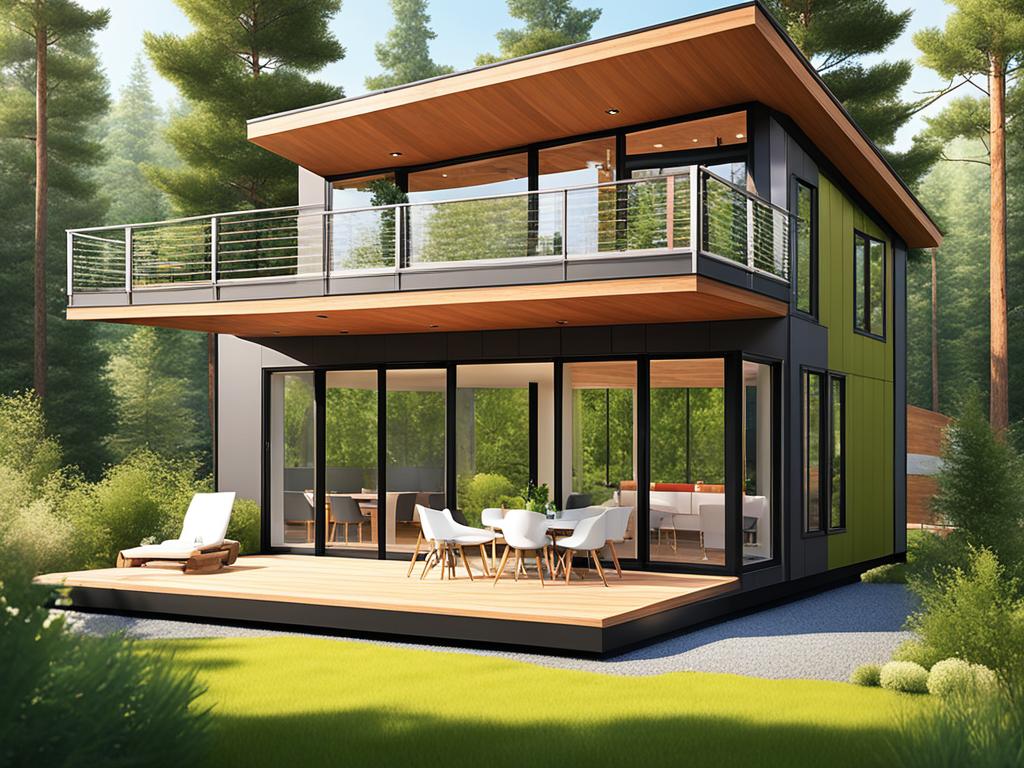
The installation process of modular homes involves arranging the modules in the desired configuration to create the complete home. This flexibility allows for customization and adaptation to various design preferences and site conditions.
As the modules are constructed in a controlled factory environment, modular homes offer greater precision and quality control compared to traditional construction methods. The factory-built components are engineered to meet strict standards and undergo rigorous inspections to ensure their durability and performance.
What is the difference between a modular home and a manufactured home?
When it comes to choosing a home, understanding the differences between a modular home and a manufactured home is essential. While both types are built in sections, there are important distinctions to consider.
Modular homes are constructed in a factory, with each section built according to local building codes and regulations. These sections are then delivered to the building site and assembled by bolting or snapping them together. This process ensures that modular homes meet high-quality standards and can qualify for conventional mortgage loans.
Manufactured homes, on the other hand, are also built in sections, but they are typically larger in size. They are constructed in a factory and transported to the site on a trailer. Upon arrival, they are installed on a foundation. Manufactured homes are regulated by the Department of Housing and Urban Development (HUD) and follow federal HUD codes.
One of the key differences between modular and manufactured homes is the building codes they adhere to. Modular homes comply with local building codes, while manufactured homes must meet federal HUD regulations. This means that modular homes are built to the same standards as traditional stick-built homes, offering peace of mind in terms of quality and safety.
Another important aspect to consider is the assembly process. Modular homes are delivered in sections and then bolted or snapped together on-site. This method ensures a strong and durable structure. In contrast, manufactured homes are transported on a trailer and installed on a foundation. The installation process may vary, but it typically involves securing the home to the foundation and connecting utilities.
Both modular and manufactured homes offer unique advantages and can be a great housing solution depending on individual needs and preferences. It’s important to consider local building codes, financing options, and personal requirements when evaluating the best choice for a new home.
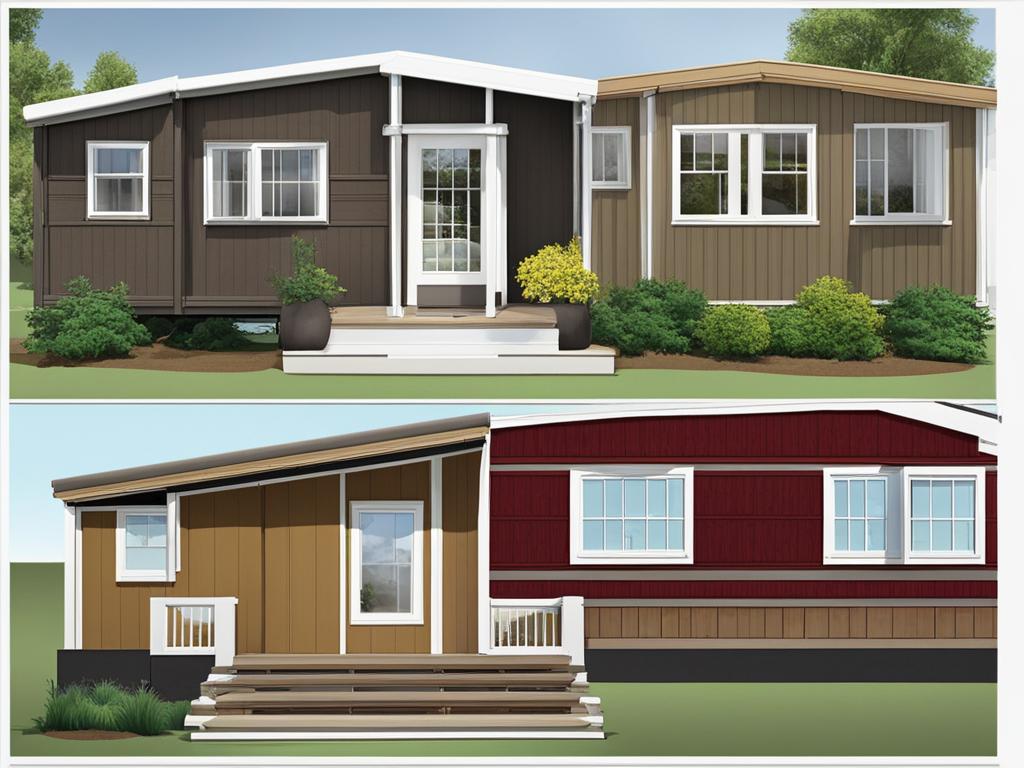
By understanding the differences between modular homes and manufactured homes, homebuyers can make informed decisions based on their specific needs. Whether it’s the flexibility and quality of modular homes or the federal HUD regulations of manufactured homes, there are options to suit a variety of preferences and budgets.
Are modular homes good quality?
When it comes to quality, modular homes are in a league of their own. These homes are not just good quality; they can be considered high quality homes. One of the reasons for their superior quality is that they are built to residential building codes, ensuring that they meet all the necessary standards and regulations.
Modular homes undergo thorough inspections throughout the construction process to ensure that every component is up to code and installed correctly. In fact, they even undergo a final inspection on-site to guarantee that everything is in perfect order before the homeowners move in.
What makes modular homes even more impressive is their performance in extreme weather conditions. These homes have proven themselves to be highly durable and capable of withstanding hurricanes, as confirmed by the Federal Emergency Management Agency (FEMA). In fact, FEMA states that modular homes perform better than conventional residential framing in major weather events.
Insurance companies also recognize the quality and safety of modular homes. Most insurance providers do not differentiate between modular homes and stick-built homes when it comes to safety concerns. This is a testament to the high standards and reliability of modular homes.
With their adherence to residential building codes, rigorous inspections, and resilience in extreme weather conditions, modular homes excel in terms of quality and durability. Homebuyers can trust that they are investing in a high-quality, long-lasting, and safe housing option with a modular home.
Is a modular home considered a house?
A modular home meets the criteria of a house. It follows residential building codes, is considered permanent, can be deeded as real property, qualifies for conventional mortgage loans, and can appreciate in value. Modular homes are a good choice for homebuyers who want to maximise their square footage and own land to place the home on.
Modular homes are built to comply with residential building codes, ensuring that they meet the same safety standards as traditionally built houses. They are subject to thorough inspections at the factory and undergo a final inspection on-site, guaranteeing their structural integrity.
Furthermore, modular homes are considered permanent structures. Once installed on a foundation, they become a part of the property and can be deeded as real property. This status allows homeowners to enjoy the same rights and benefits as those owning conventionally built houses.
Another advantage of modular homes is their eligibility for conventional mortgage loans. Lenders recognise modular homes as real estate assets and offer financing options similar to those available for stick-built houses. This flexibility allows homebuyers to secure a conventional mortgage loan with favourable interest rates and terms.
Additionally, modular homes have the potential to appreciate in value over time, just like traditional houses. As the housing market fluctuates, modular homeowners can benefit from their investment and see the value of their property increase.
Overall, modular homes fulfil all the necessary requirements to be considered houses. They adhere to residential building codes, provide permanent housing solutions, qualify for conventional mortgage loans, and have the potential to appreciate in value. Choosing a modular home offers homebuyers the opportunity to maximise their living space while enjoying the benefits of owning a traditional house.
What does a modular home cost?
The cost of a modular home can vary depending on several factors, including the selection of the modular home floor plan and any additional fees associated with customization. However, excluding the cost of the land, you can generally expect a modular home to cost between £100 and £200 per square foot. For example, a 1,800 square foot modular home could range in price from as low as £180,000 to as high as £360,000.
Modular homes offer a cost-effective alternative to traditional stick-built homes, with potential savings ranging from 10 to 35 percent. By utilizing the efficiencies of factory construction and minimizing on-site labor, modular homes can often provide more value for your money. Additionally, the controlled environment of the factory helps to minimize errors and ensure the highest quality construction for your home.
It’s important to note that the cost of the land is not included in the price of the modular home. The price of land can vary greatly depending on location, size, and other factors. Therefore, when budgeting for a modular home, it’s essential to consider the cost of the land separately.
Overall, modular homes offer a cost-efficient housing solution without compromising on quality or style. Whether you desire a spacious family home or a compact and cozy retreat, modular homes provide the flexibility to cater to your specific needs and preferences.
Choosing the Right Modular Home Floor Plan
One of the factors that can influence the cost of a modular home is the selection of the floor plan. Modular home manufacturers typically offer a range of options to suit various budgets and lifestyles.
When choosing a modular home floor plan, consider your specific requirements in terms of space, layout, and design. Are you looking for an open-concept living area, multiple bedrooms, or a specific architectural style?
It’s essential to find a floor plan that meets your current needs while also allowing for future growth and adaptability. Customizing your modular home to fit your unique preferences can be done through selecting specific fixtures, finishes, and additional upgrades.
By customizing your modular home, you can create a space that truly reflects your personal style and enhances your quality of life.

Visualize the possibilities and get inspired by browsing through various modular home floor plans and designs. With the option to customise different aspects of your home, you can bring your vision to life while still staying within your budget.
Speak to modular home manufacturers and professionals in the industry to get guidance and recommendations on how to select the best floor plan options for your modular home.
Conclusion
Micro modular homes provide an efficient and sustainable housing solution for individuals seeking compact and affordable homes. These innovative prefabricated dwellings are constructed using components made in advance in a factory. With their high-quality construction and proven durability in extreme weather conditions, modular homes offer a reliable alternative to traditional stick-built houses.
One of the major advantages of micro modular homes is their cost-effectiveness. Compared to stick-built homes, modular homes can result in savings ranging from 10 to 35 percent. This affordability makes them an attractive option for those looking to maximize their budget without compromising on quality or style.
Furthermore, micro modular homes meet all the criteria of a conventional house. They are designed to residential building codes, allowing them to qualify for conventional mortgage loans. Additionally, these homes can appreciate in value, making them a solid investment for homeowners.
In summary, micro modular homes present a sustainable living solution for those seeking compact and affordable housing. With their efficient construction process, cost-effectiveness, and focus on high-quality design, these innovative homes offer a practical and eco-friendly alternative for individuals looking for space-saving dwellings.
FAQ
What are micro modular homes?
Micro modular homes are a type of prefabricated home that is built from components made in advance in a factory. They offer compact and efficient housing solutions, with a small footprint and innovative modular design.
How are modular homes different from traditional homes?
Modular homes are built in sections, known as modules, in a factory and then assembled on-site. Traditional homes are built piece by piece at the site using building materials. Prefabricated homes, including modular homes, are built to local building codes and regulations for quality and safety.
What is the difference between a modular home and a manufactured home?
Modular homes are built in sections in a factory and installed on-site by bolting or snapping the sections together. Manufactured homes are also built in sections but are larger in size and follow federal regulations. Manufactured homes are shipped to the site on a trailer and installed on a foundation.
Are modular homes of good quality?
Yes, modular homes are considered high quality. They are built to residential building codes and undergo thorough inspections, including on-site inspections. Modular homes have proven themselves durable in extreme weather conditions and perform well in major weather events like hurricanes.
Is a modular home considered a house?
Yes, a modular home meets the criteria of a house. It follows residential building codes, is considered permanent, can be deeded as real property, qualifies for conventional mortgage loans, and can appreciate in value.
What does a modular home cost?
The cost of a modular home varies depending on factors such as the floor plan selection and additional fees. Excluding the cost of land, a modular home typically costs between 0 to 0 per square foot. For example, a 1,800 square foot modular home can cost as low as 0,000 and as high as 0,000.
Are micro modular homes an affordable housing option?
Yes, micro modular homes offer affordable housing options. They are cost-effective compared to stick-built homes, with potential savings of 10 to 35 percent. They are a popular choice for homebuyers who want to maximize their square footage while keeping costs lower.
Are micro modular homes sustainable?
Yes, micro modular homes offer sustainable living options. They are designed to be eco-friendly and energy-efficient, with a smaller environmental footprint. These homes can incorporate sustainable materials and technologies to reduce energy consumption and promote a greener lifestyle.
Can I customize a micro modular home?
Yes, micro modular homes can be customized to fit your specific needs and preferences. Many modular home manufacturers offer a range of floor plans and design options to choose from. You can also work with a manufacturer to create a custom modular home that meets your unique requirements.

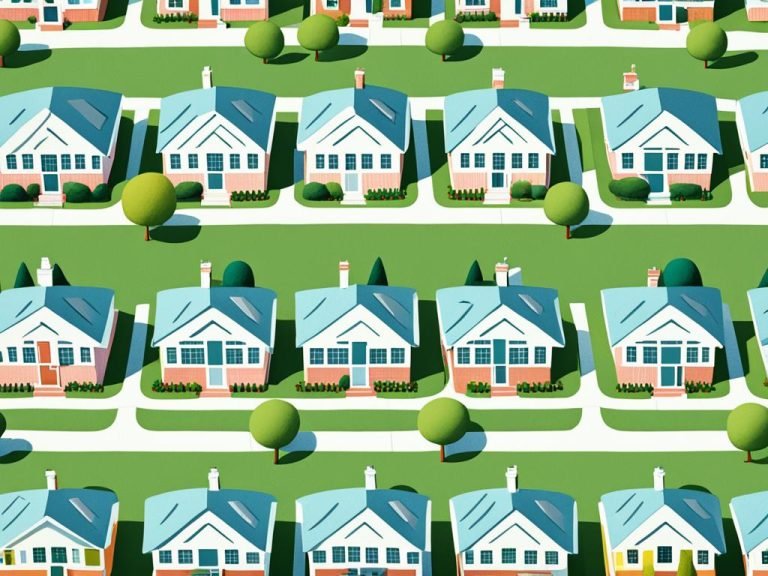
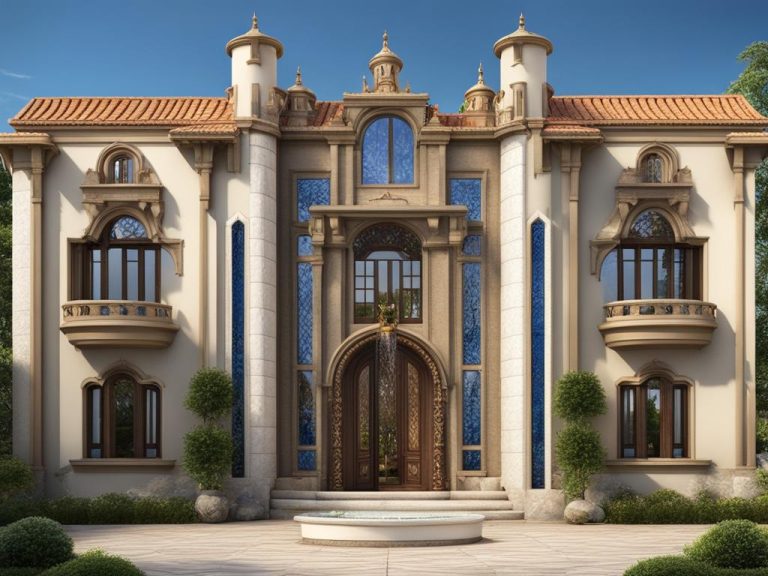
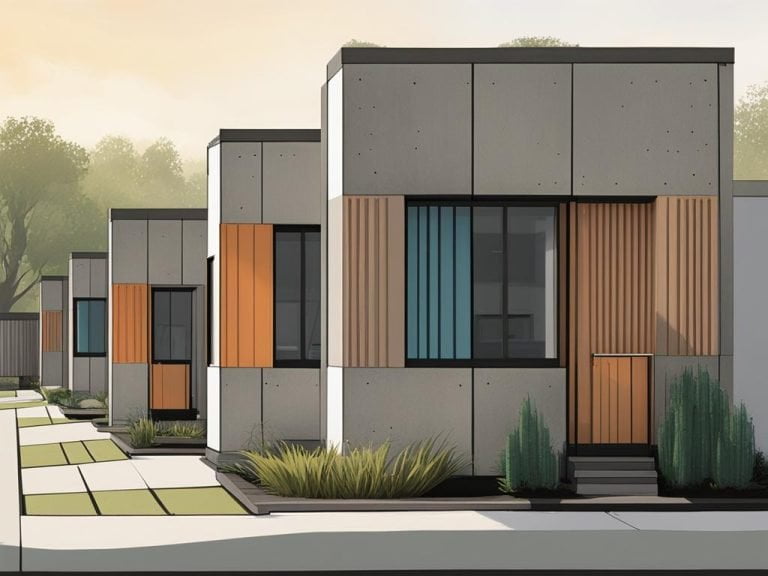
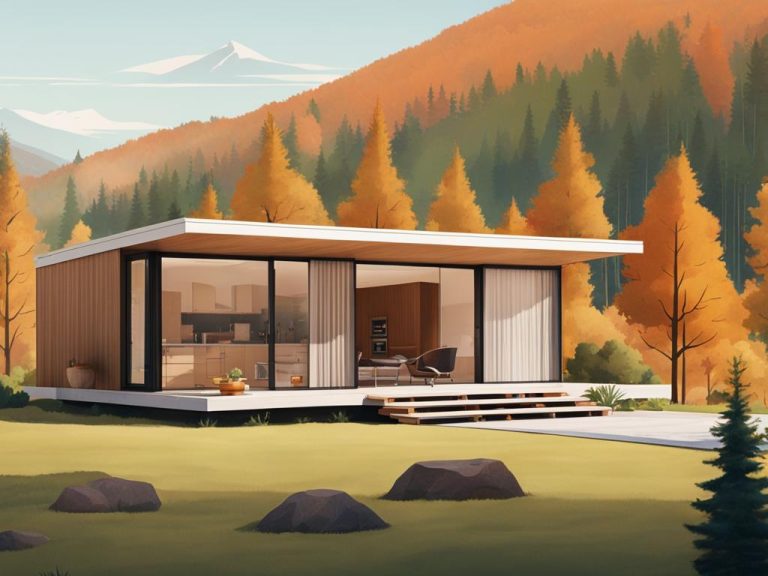
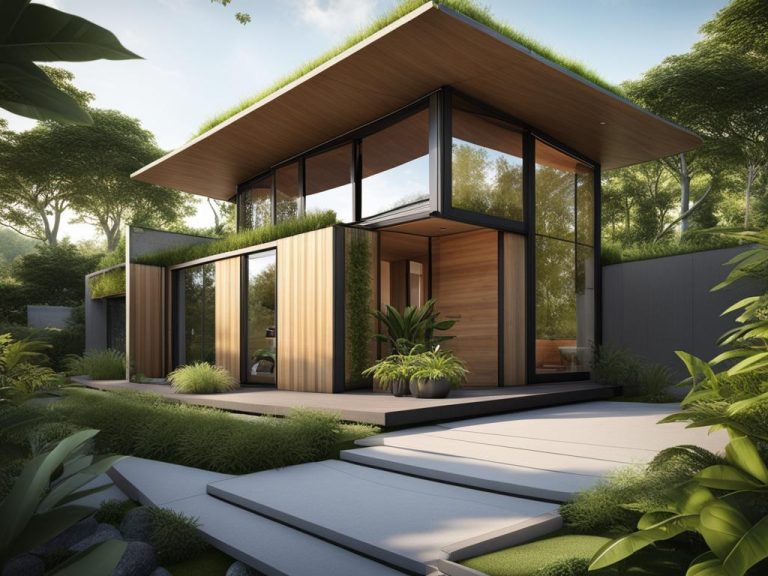
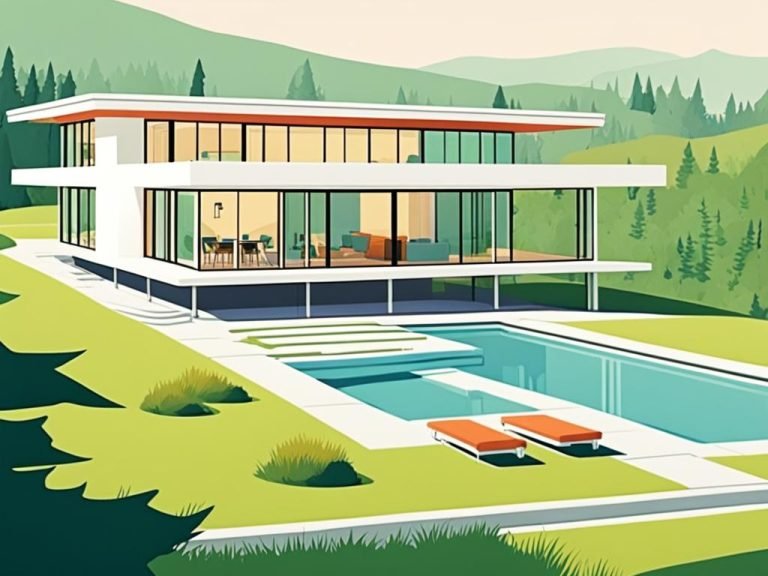
Thank you for your sharing. I am worried that I lack creative ideas. It is your article that makes me full of hope. Thank you. But, I have a question, can you help me?